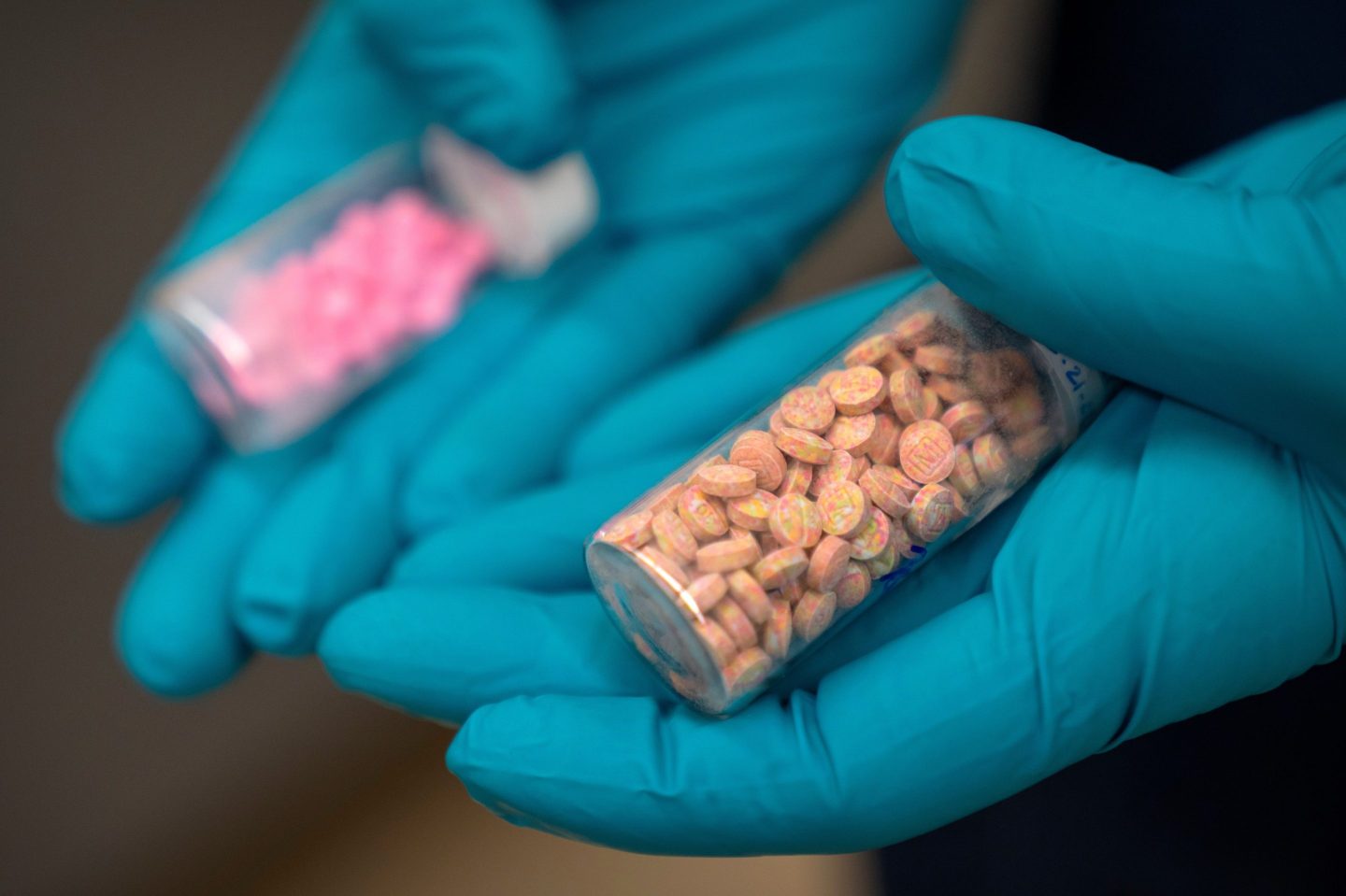Hello and happy Friday, readers. This is Sy.
MIT scientists have developed new tech nestled at the corner of several growing, if still nascent, elements of the life sciences zeitgeist: An ingestible sensor containing genetically modified bacteria that could be used to sniff out diseases in the hard-to-reach gastrointestinal tract (by relaying data to a smartphone).
Let’s start off with the inevitable caveats. The study of the device, published in Science, is very early stage and involved pigs, not humans. But the technology’s potential applications are striking.
“By combining engineered biological sensors together with low-power wireless electronics, we can detect biological signals in the body and in near real-time, enabling new diagnostic capabilities for human health applications,” said MIT’s Timothy Lu in a statement. Put another way: These “living cell” sensors can interact with blood components, including biological markers that indicate disease, and relay those responses through a wireless, smartphone-readable signal.
You can check out MIT’s video of the technology here.
Ingestible sensors are having a moment, as evidenced by the FDA approval of the first-ever “digital pill” last year. That device, from Proteus Digital Health and Otsuka Pharmaceuticals, is meant to monitor whether or not patients are sticking to their prescribed drug regimens. The prospect of being able to use other forms of that tech to provide a real-time readout on what’s happening in the gut—which could have implications for everything from gastrointestinal disorders to figuring out how to make drugs more effective—is a notable one.
Read on for the day’s news—and enjoy your Memorial Day weekend. We’ll be back in your inboxes on Tuesday, May 29.
| Sy Mukherjee | |
| @the_sy_guy | |
| sayak.mukherjee@fortune.com |
DIGITAL HEALTH
Elliott Management puts the squeeze on Athenahealth. Elliott Management is persisting in its bid for health IT and analytics firm Athenahealth—and it's employing a bit of a sugar-and-vinegar approach in its latest letter to the latter company's board of directors, issued Thursday. "It is also important to emphasize that athenahealth’s stock price is now trading at $154 per share, an increase of 22% from the stock price prior to the public disclosure of Elliott’s offer. Investors are now expecting the Company to engage with Elliott and other interested parties. Failure to engage will likely result in athenahealth’s stock returning to depressed levels," wrote Elliott. The firm has made a $160-per-share all-cash offer in the deal.
INDICATIONS
Delving into the massive cancer immunotherapy landscape. The Cancer Research Institute is out with a fantastic, and fantastically detailed, new report on the global state of cancer immunotherapy R&D. This field has become one of the go-to therapeutic spaces for life sciences companies large and small alike (to the point that some observers are concerned there may not be enough clinical trial participants for the sheer number of ongoing studies.) CRI's report is a detailed account of which kinds of new cancer technologies are being explored by companies across the world. (CRI)
Biopharma staffers really don't like open offices. It seems downright impossible to escape the "open office" in corporate culture these days. That's a reality which draws some strong reactions from workers. And, in biopharma at least, staffers don't seem particularly pleased with the approach. Endpoints News polled more than 600 industry respondents and the message was clear: "80% said they hated the idea of an open office — and 43% of these people work in an open office." (Endpoints)
THE BIG PICTURE
California's Obamacare marketplace throws down the gauntlet on C-sections, other services. Covered California, the state's individual health insurance marketplace established under Obamacare, is issuing a challenge to hospitals in its networks: Meet safety and quality metrics for C-sections, medical imaging, and opioid prescriptions, or pay a potentially steep economic price. Hospitals that don't meet certain goals (including for lowering the number of unnecessary C-sections) will no longer get "in-network" designations under Covered California within two years, which could essentially carve them out of the individual insurance marketplace. (Kaiser Health News)
REQUIRED READING
Q&A: Sean Parker on Napster, Spotify, and His Federal Tax Law Triumph, by Clifton Leaf
Why Nordstrom Is Betting on High Touch Tech, by Phil Wahba
Activists Are Already Targeting Google and Facebook Over the New European Privacy Law, by David Meyer
Facebook Accused of Widespread Surveillance of Its Users, by Don Reisinger
| Produced by Sy Mukherjee | |
| @the_sy_guy | |
| sayak.mukherjee@fortune.com |
Find past coverage. Sign up for other Fortune newsletters.










